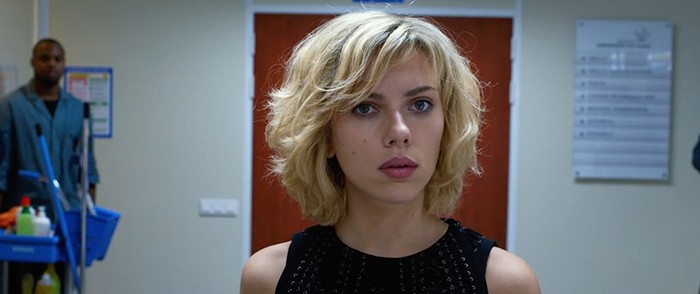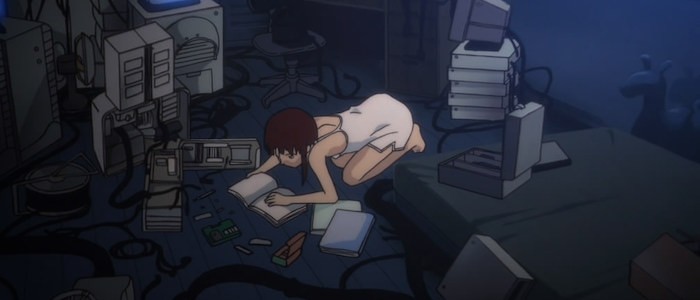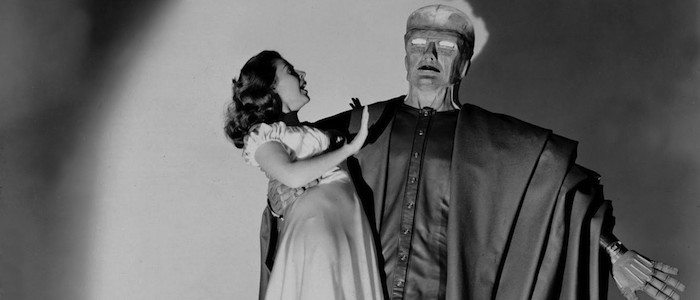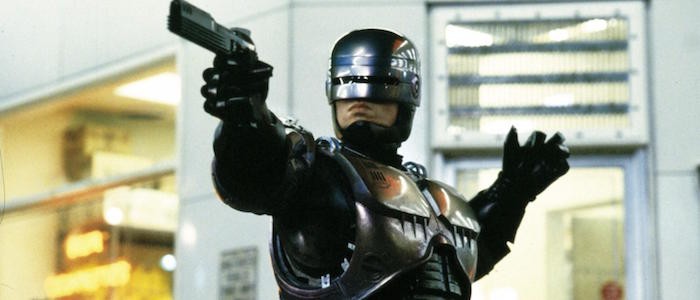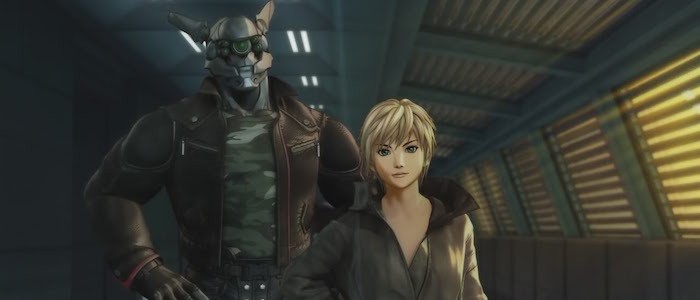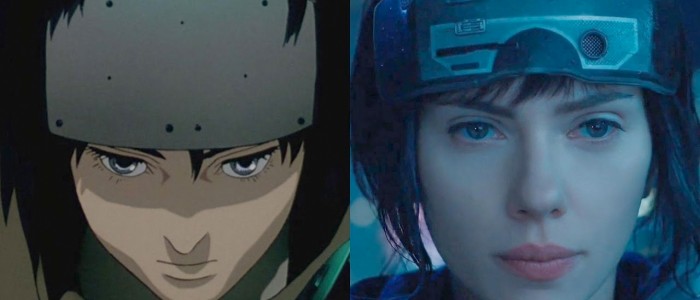Movie Mixtape: 6 Movies To Watch After 'Ghost In The Shell'
(Welcome to Movie Mixtape, where we find cinematic relatives and seek out interesting connections between new releases and older movies that allow us to rethink and enjoy what's in our theaters as well as the favorites on our shelf. In this edition: Rupert Sanders' Ghost in the Shell.)
Elon Musk is on the verge of shoving AI into our brains, and Scarlett Johansson hits theaters this week to sell us on how cool becoming a cyborg can be. After almost three decades in the public consciousness, first as a gorgeously challenging manga and then as boundary-busting animation, Masamune Shirow's Ghost in the Shell has evolved into human form.
Finding films to watch alongside it isn't hard. The cyberpunk exploits of Public Security Section 9 chasing down a mind hacker have inspired the technological imaginations of plenty of modern movies (not to mention launching a franchise of three animated movies, a TV series and several Original Video Animations).
Ghost in the Shell is the godmother that came along at the perfect time to re-launch a vision of the future fueled by the incipient internet, our relationship to AI, and the near-inevitability of our fusion with machines. It turns out the only difficulty in hunting down its peers is finding examples that see that future as optimistically as it does.
The Matrix
We've gotta get the obvious out of the way first. The Wachowski Sisters' breakthrough masterpiece is effectively the first live-action Ghost in the Shell. Just as GitS was inspired by William Gibson's "Neuromancer," The Matrix borrowed extensively not only from GitS's mental DNA but also directly from its visuals. The inspiration is fantastically clear.
The naked, adult-fetal body emerging from the liquid, the neck plugs, and even some of the action beats should look familiar. The blending of humankind and machine is really just the start, so watching them back-to-back offers an interesting feeling of deja vu –as if The Matrix offers the dark view on what might have happened years after the tech-stasis of Ghost in the Shell, when the machines started getting bored with our weak, fleshy nonsense and realized how good we are at producing energy.
Lucy
Luc Besson's absurd(ly great) action flick is one part Ghost in the Shell, one part Limitless, thrusting star Scarlett Johansson into the position of accidental drug mule-turned-superhero. Instead of neural lacing and an invasive internet, this film uses chemicals to hack the human mind, twisting cinema's favorite myth about us "only using 10% of our brains" into a starting pistol with Charles Xavier as the finish line. And since we're all in a big inspirational stew, Lucy is also essentially Neo, evolving from wan work drone to reality-bending wizard. It, as well as her performance as Black Widow, gives us a glimpse into her abilities as a CGI-assisted action star. It'll be interesting to see how similar her Ghost in the Shell protagonist is to Lucy.
Serial Experiments Lain
When it comes to weird anime street cred, this late '90s series has got it in spades. A pile-up of identity philosophy, the intrusion of computers, and high level conspiracies, Serial Experiments Lain focuses on a young suburban girl drawn into an expanded vision of the internet called The Wired when some of her classmates get an email from a girl who killed herself. In the context of her own psychological confusion, the series explores a razor thin line between reality and a simulation, placing her as the linchpin keeping the two worlds separated, and enticing her to let go of that separation by dying so that her corporeal awareness gets sloughed off. Like Ghost in the Shell, there's also a computing genius switching sides in a game of cat-and-mouse with the curious hero, but a major thematic difference is the kind of exploration of suicide and mental illness that would later be reflected by Marion Cotillard's Mal in Inception. As we blow past the Turing Test, we'll have to reckon with a blurring line between reality and its virtual counterpart.
The Colossus of New York
After winning the "International Peace Prize," Jeremy Spensser (Ross Martin) dies in a car crash, but his famous brain surgeon father (Otto Kruger) can't let his son or his potential to change the world go. So he transplants Jeremy's brain into a grotesque automaton so that his humanitarian work can continue. Turns out, that may have been a bad call. Eugène Lourié's b-movie contemplation of the dangers of future tech argues starkly that machines make us lose our humanity by showing us one of our best reduced to a laser-beam shooting metal shell of his former self.
There can be no question, in The Colossus of New York, people and machines cannot co-exist in one body because the mechanical element squeezes out space where the soul used to live. Spensser ends up with the compassion of a vending machine even with that extra S in his last name. An outcast outside of his natural body, Spensser becomes a rampaging killer monster in a cautionary tale that should have people giving their microwaves suspicious glances. If the message at the end of Ghost in the Shell is that humans can find a symbiosis with machinery, the message of Colossus of New York is that the machines will always overpower us.
RoboCop
Speaking of which, Paul Verhoeven's cyberpunk classic about preserving a good cop in an ultra-powerful metal body does not look kindly on the future of technology. The conservation of Alex Murphy (Peter Weller) by making him a cyborg follows the same plot and logic of The Colossus of New York, where saving an ethical vessel is a priority regardless of the potential negative outcomes (that some villainous fascists are hoping for). It ultimately becomes a deeply skeptical version of The Six Million Dollar Man where the human part of Alex has to battle with the hackable robot part with a shockingly limited number of initial directives. It's a vision of fascism at the helm of the world's most powerful weapons, ultimately indicting all of us as accessories to an authoritarian-aided descent into the brutal promise of a privatized police force. RoboCop is a phenomenally well-armed hero who also seems like he could be programmed to kill innocents in about five minutes. Like all tools, weapons, and our minds, what matters most is the intentions of who's controlling them.
Appleseed: Ex Machina
Based on another manga from Ghost in the Shell writer Masamune Shirow, the Appleseed franchise is like a neglected step-child to the iconic anime. The similarities are all there: futuristic urban warfare featuring cyborgs and an ass-kicking special forces expert pondering the definition of humanity amid war and technology. It has never emerged from GitS's shadow because the newer model doesn't offer a lot of innovative bells or whistles beyond the eye-popping animation. The initial entry in the franchise, Appleseed, is a clunky beast, but its sequel is actually a lot of fun. Neither go as deep on the question of identity as GitS does, but they do take a different tack on how technology can hurt and abandon us. Just as the good guys of Appleseed: Ex Machina (SWAT leader Deunan Knute and cyborg Briareos Hecatonchires) use tech to battle the baddies, the main existential crisis of the film is a villain attempting to use tech to erase individuality through a, you guessed it, interconnected web of communication and information.
The Mix
While digging around for fun movies to watch with the new Ghost in the Shell, it became obvious how negatively American cinema views advanced technology. We're thrilled by the feats of Iron Man, but we can't help questioning the extent of that power or wanting to curtail it somehow. Artificial Intelligence – even blending it with human consciousness – affirms that the playing field isn't level, and that fusion feels somehow more sinister than the wave of first adopters to get iPhone texts on their wrist. We've used tech to improve our lives for centuries, and we already have real-life cyborgs, but we've constantly got our eye on the tipping point at which we lose control of the creations.
The original Ghost in the Shell contemplates our relationship with robotics (a group that's currently poised to take all of our jobs) and ends with a sense of how people and machines can create a blended community, even within a single body. Will the new live-action version be as optimistic about that relationship?

